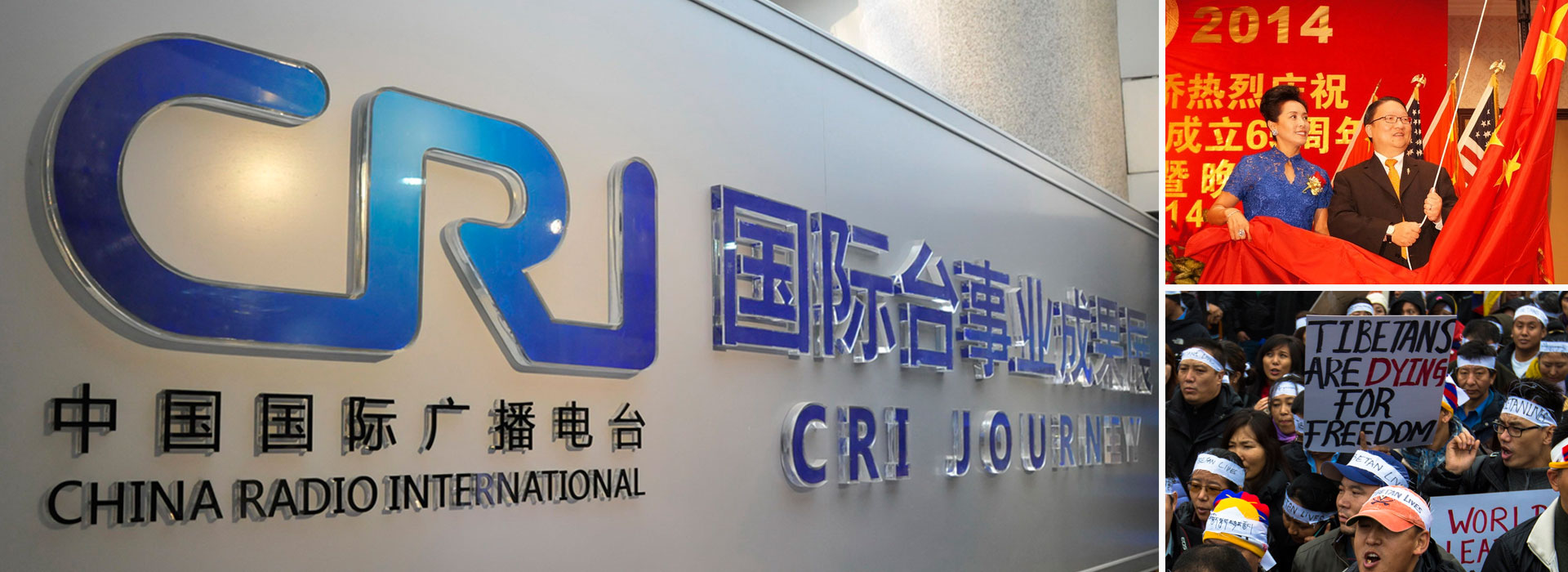In recent months, a Reuters series on China’s spreading global influence has investigated self-censorship in Hollywood and intimidation at the U.N.. Its latest installment focuses on radio stations and airtime covertly controlled by state broadcaster China Radio International, reaching “from Finland to Nepal to Australia, and from Philadelphia to San Francisco.” One key figure argues that “our U.S. audience […] can choose to listen or not listen. I think this is an American value.” But the report suggests deliberate efforts to make this a less than informed decision. From Koh Gui Qing and John Shiffman:
China has a number of state-run media properties, such as the Xinhua news agency, that are well-known around the world. But American officials charged with monitoring foreign media ownership and propaganda said they were unaware of the Chinese-controlled radio operation inside the United States until contacted by Reuters. A half-dozen former senior U.S. officials said federal authorities should investigate whether the arrangement violates laws governing foreign media and agents in the United States.
[…] “We are not the evil empire that some Western media portray us to be,” said a person close to the Communist Party leadership in Beijing who is familiar with the CRI network. “Western media reports about China are too negative. We just want to improve our international image. It’s self-protection.”
[…] In some ways, the CRI-backed radio stations fulfill a similar advocacy role to that of the U.S.-run Voice of America. But there is a fundamental difference: VOA openly publishes the fact that it receives U.S. government funding. CRI is using front companies that cloak its role. [Source]
A commentary in The Age last year warned of similar “infiltration” of Australia’s print and broadcast media.
There are some similarities between CRI’s hidden network and the murky origins of several recent pro-Party viral videos. “Do you think what you produce is propaganda?” Xinhua asked the unnamed lead creator of a recent clip on the 13th Five Year Plan, which harnessed a wave of mockery to flood China-focused social and other media last week. “I prefer the word ‘communication,’” he or she replied. Last week Quartz’s Zheping Huang described the group, whose other work includes a 2013 cartoon on Xi Jinping’s arduous rise to power, as follows:
Fuxing Road Studio, the production company behind the video, is evasive. It has never introduced itself as a state- or Party-backed production company, or provided credits for its filmmaking crew, but its message in unambiguously pro-Party. It does not deal with English-language media directly, hiring foreign PR agencies to do so instead. […] And Fuxing often keeps its identity secret even from these PR firms. One British agency that it hired to promote the video “Britain Meets China” did not know that the contract came from Fuxing. [Source]
Similarly pro-government videos have come from ChaoYang Studio, whose earlier productions were banned for satirizing official opacity.








